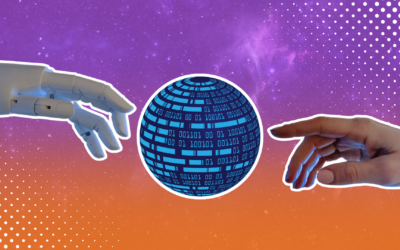Adapting Maslow for Digital Transformation
12
Jan 2023
-
CAtegories
-
discover more
What is your business doing to survive and thrive in the Expectation Economy? Can a mid-20th century psychology theory on human behavior help you meet and exceed consumer expectations when Apple and others have set the bar so high? Absolutely! This WHITE PAPER shows you how.
Long before Simon Sinek asked us to find our why, Abraham Maslow’s Hierarchy of Needs organized human motivation into a behavior theory that remains relevant even today in our hyper-kinetic and always-on world. Maslow’s original work, along with Clayton Alderfer’s late-60s update, provides guidelines companies today can adopt and adapt to develop digital transformation roadmaps that will keep existing customers, employees and partners happy, while convincing more prospects to buy, subscribe or visit.

Digital transformation is key because we now live in a 24/7 Expectation Economy where everyone expects everything to not just work, but be incredibly simple and packed with features they didn’t even know they needed. The customer experience Apple initiated with the iPhone has become the aspirational norm. We want this—and expect it — throughout the day, whether it’s shopping for a new dishwasher, ordering shoes, pre-paying highway tolls, buying ferry tickets or touring a new housing development. Friction or inconvenience of any kind stands out. Organizations unable to deliver ease and simplicity are finding themselves running a Class 5 river to oblivion.
Borrowing from behavioral science, this 21st-century adaptation of motivation theory takes a Maslow/Alderfer-like approach to the topic of how companies can progressively and smartly invest in digital transformation. Progressive and smart are important characteristics because digital transformation is extremely costly when poorly planned and implemented. Referencing Nike, Apple, Motel6, W Hotels, AT&T and others, we discuss how companies can maximize digital technology’s transformative power:
- Maslow’s Hierarchy of Needs and Aldelfer’s update
- How 80-year-old research still applies to the world of business
- Using motivation theory to develop a digital transformation roadmap
- The importance of understanding user expectations
- Four key steps you must do before even thinking of technology choices
- How to digitally satisfy Existence, Relatedness and Growth needs
- Real-world digital transformation examples and opportunities
You’ll learn:
- How to get started building your digital transformation roadmap.
- A new perspective for understanding users.
- How a needs-centered plan perfectly aligns with the Expectation Economy.
Sceptical that motivation theory remains relevant in 2021? Chip Conley leaned on Maslow to build Joie de Vivre Hospitality into the second largest chain of boutique hotels in the US before joining AirBnB as Head of Global Hospitality and Strategy. He wrote Peak: How Great Companies Get their Mojo from Maslow then joined the TED Talks circuit to explain how translating Maslow into specific actions can create an enduring and profitable corporate culture.
As Maslow and Alderfer capably pointed out, humans have specific levels and types of motivation. Similarly, today’s customers have expectations about how companies should make them feel wanted, appreciated and well served (what they’re already getting from a rising number of companies). From multinationals to your local auto repair shop, digital technology can help millions of businesses around the world progressively mirror the transformative genius of Apple and other companies we can’t help but admire. THIS WHITE PAPER is your getting started guidebook.








